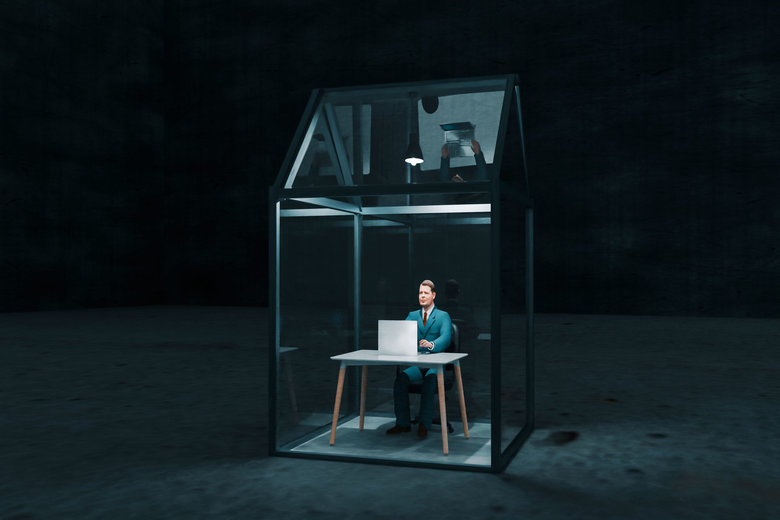
The 2020 Cyber Security Strategy is an important step towards addressing a major threat to our national security, national economy and public sector, writes Roger Carvosso.

The Cyber Security Strategy Industry Advisory Panel established by the Federal Government to provide strategic advice on Australia’s 2020 Cyber Security Strategy delivered its report on July 21.
It contains 60 recommendations to bolster the nation’s critical cyber defences, structured around a five-pillared framework of deterrence, prevention, detection, resilience and investment.
The Cyber Security Review, led by the Department of the Prime Minister and Cabinet, found that cybercrime is costing the Australian economy up to $1 billion annually in direct costs alone. Cybercriminals that successfully target small businesses, through phishing and ransomware attacks, result in a high rate of failure of those same businesses. And, with the underlying financial economic weakness from COVID-19, it is a double blow.
It’s worth noting with remote working arrangements now the norm in the public sector as well as the private sector, Australian government and public sector organisations are in a more vulnerable position against the threats of cyber-crime than ever before.
Far from impeding or discouraging cybercrime or state-based actors, the COVID-19-driven mandate for remote working has and will embolden ‘hackers’ to target Australian Government at all levels – Federal, State and Local – as well as federal government departments such as Defence, high-profile national agencies such as the CSIRO and Bureau of Meteorology, and public sector financial institutions such as public service employee superannuation and retirement funds.
As an Australian-headquartered global cyber security company, we have seen first-hand the growth in cyber threats leading up to and accelerating exponentially since the onset of the COVID-19 pandemic, especially targeting SMEs, but also Local Government (municipal councils). We’ve observed an 800% increase in inbound email across our Cloud Content Security Platforms in Australia. Some of it is increased activity by staff now working more remotely with less face to face contact, but much of it is spam and malware.
Getting your public sector ‘perimeter’ cyber secure with cloud email, web and endpoint security is a quick way to stop over 90% of cyber threats before they reach staff.
Malicious actors and hackers have developed ‘coronavirus-themed’ attacks and globally we are seeing large increases in successful compromises, supporting the view that all organisations are at heightened risk.
With the huge growth in staff now working from home in a less cyber secure environment, the public sector is now more at risk. We have witnessed our partners and customers move most staff to remote working and indications are that many won’t return back to the office for a long time, if ever.
While most cyber security systems have strong controls, the human element is one area we can all help to minimise our vulnerability. Equipping staff with both training and technology is key to keeping ahead of this threat tsunami. Your departments have to be proactive in their approach to cyber reliance, not reactive.
It is important to be trained to be prudent and suspicious in your email and internet practices, but in the COVID-19 work continuity environment there are some practical steps to also consider:
Data Security
Use corporate data securely – less secure home wi-fi networks are more vulnerable to attack. Ensure you are using multi-factor authentication. Many current attacks exploit macro/scripting infections. Businesses should reduce the use of macros/scripting languages to users who need the functionality
Device Security
Ensure devices are always updated and patched. Patch all of your endpoint devices, with a particular focus on browser and productivity application vulnerabilities. Consider stricter separation between personal and corporate devices and being more vigilant with mobile devices. Make sure you are running an advanced antivirus solution like Cisco AMP and that it is up to date.
Email and Web Security
Phishing awareness – Human error is one of the largest enablers of cyber-attacks. Carefully check both the sender and the contents of an email before clicking on any links or opening any attachments. Report suspicious emails.
Passwords and MFA
Consider frequent password changes, make sure you use special characters, numbers and capitals. You should be using long passwords that are easy for you to remember. Ensure all of your access includes Multi Factor Authentication (MFA).
Ransomware
Ransomware can overwrite data and backups, even data saved in Sharepoint and the cloud. For all of your most critical data, you should consider how you could recover from ransomware.
Physical Security
Bear the physical security of devices in mind. Never leave a device unattended away from home or the office. Avoid other members of your household using your work device. Remember most staff are accountable for all actions performed on their devices.
We all hope that the disruption to people’s lives and work from COVID-19 will end soon and we pray for everyone’s well-being. However, even when we get over COVID-19, remote working will be the new norm across many companies. Don’t forget to secure remote working as government continuity is more important than ever before.
*Roger Carvosso, Strategy Director at First Wave Cloud technology
Comment below to have your say on this story.
If you have a news story or tip-off, get in touch at editorial@governmentnews.com.au.
Sign up to the Government News newsletter